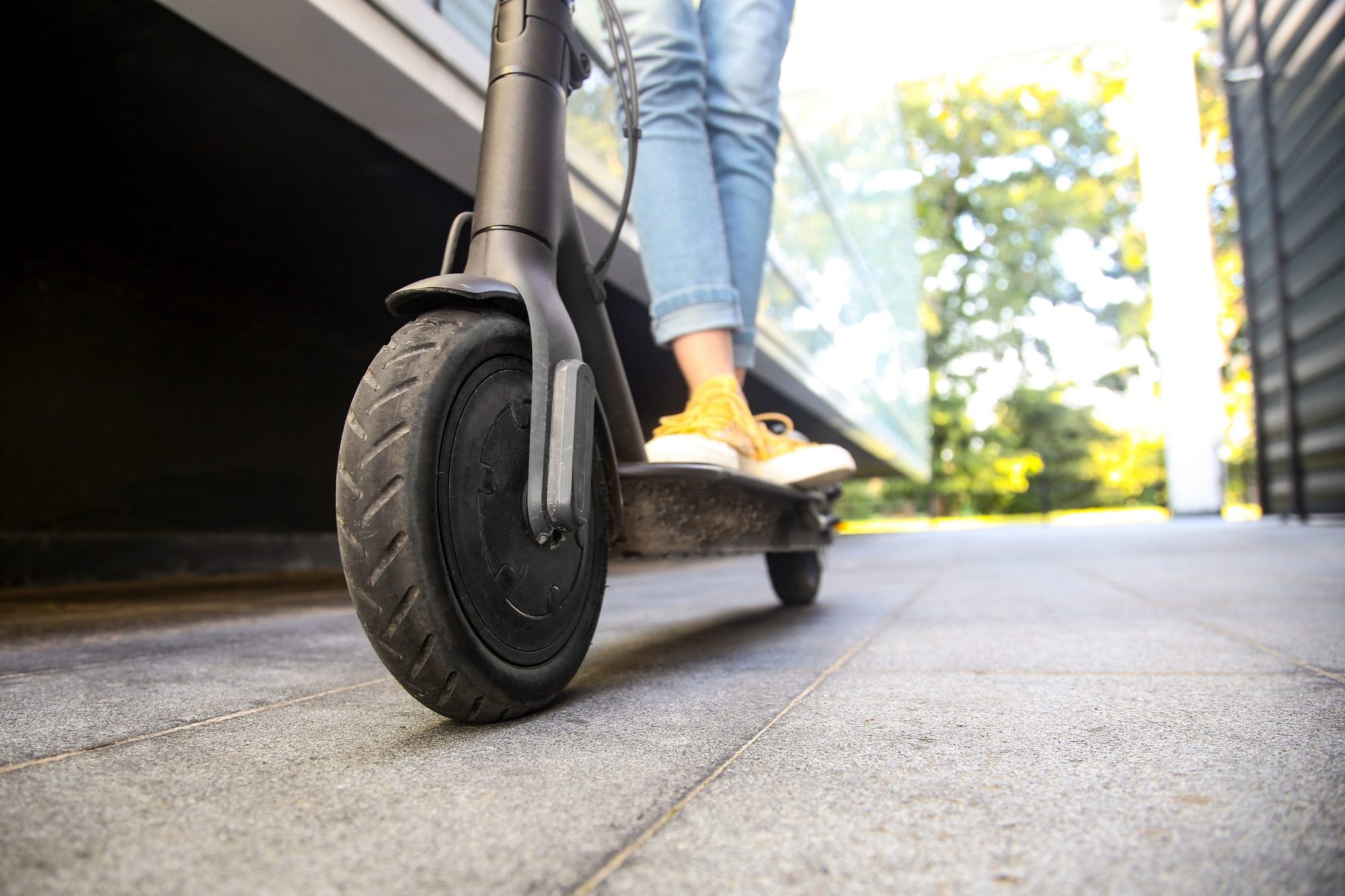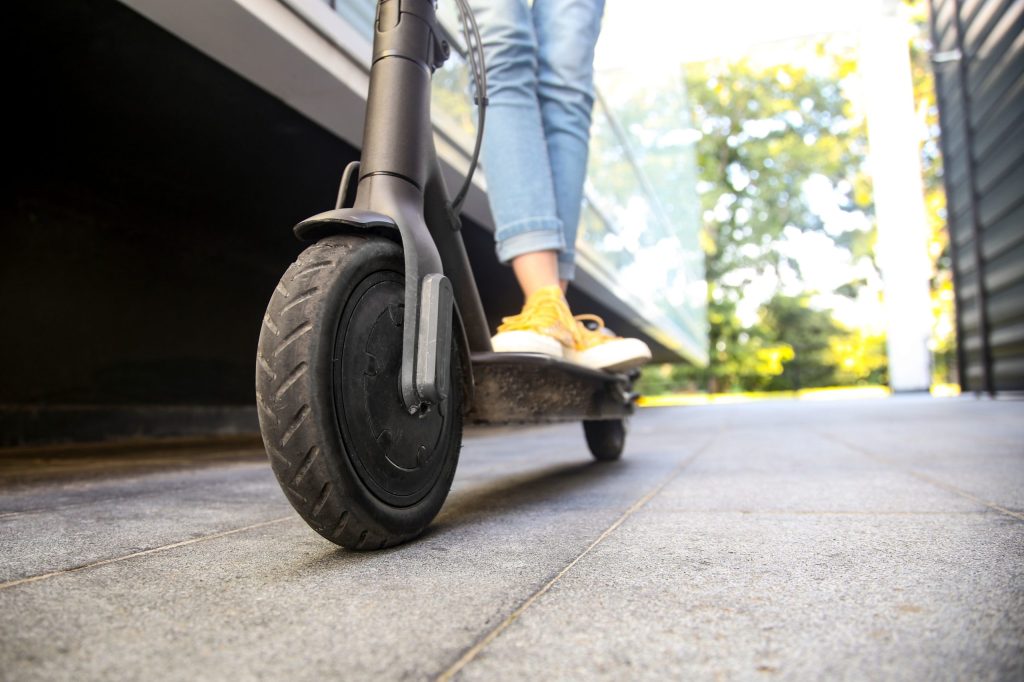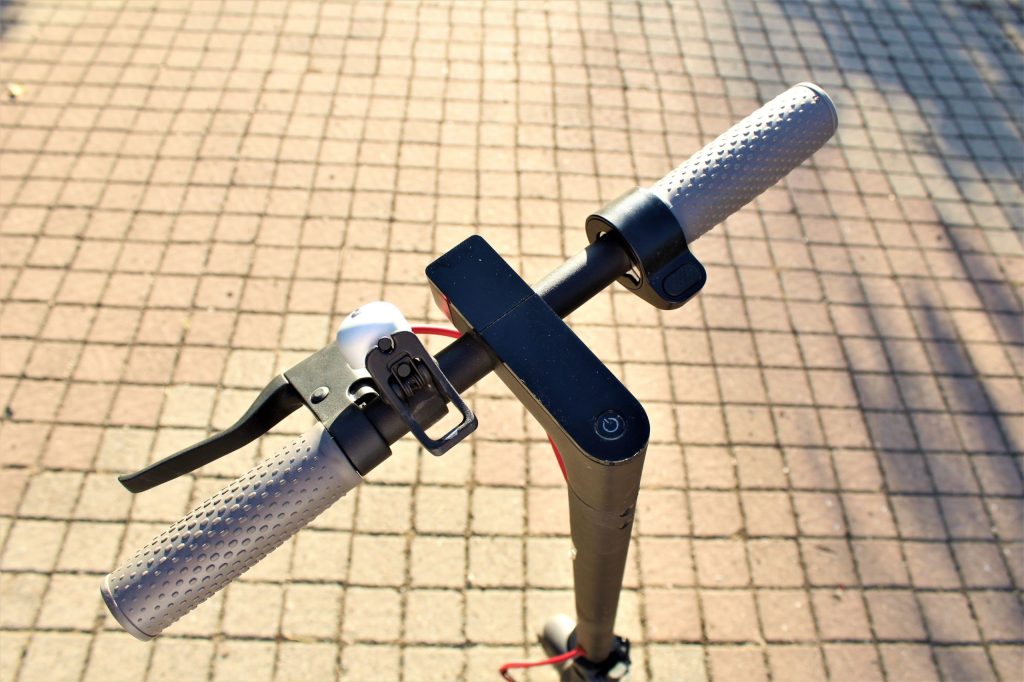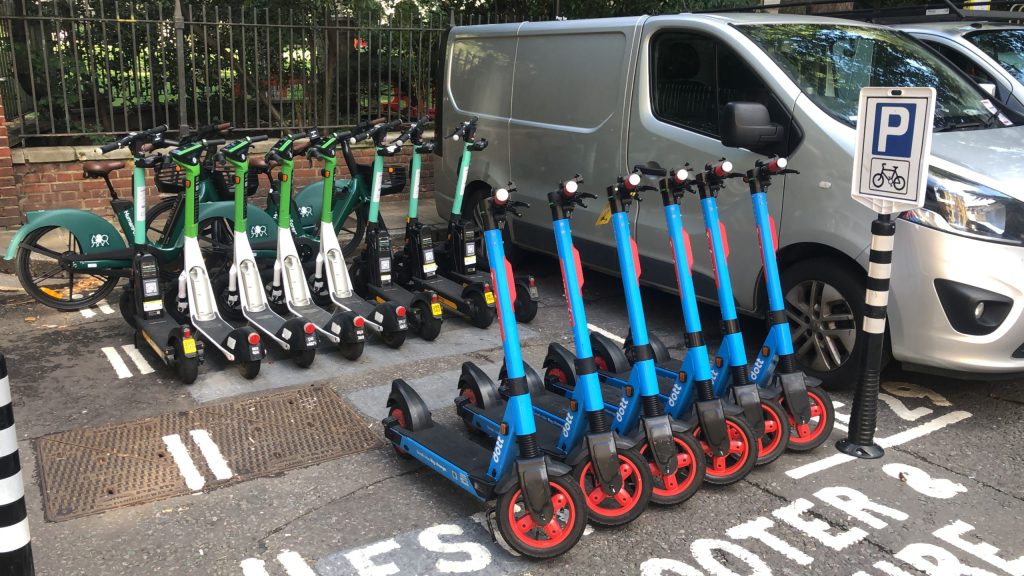What are the current laws for electric scooters?

Electric scooters in the United Kingdom remain a divisive topic. Much like marmite. You either love them or you hate them. On the one hand, we have people who believe they are the future of urban transportation. Providing a convenient, sustainable and easy-to-use form of transportation. However, on the other side, we have those that believe they are dangerous and reckless.
This heated debate has arguably been fuelled by the ambiguous laws surrounding electric scooters in the United Kingdom. In addition to this, there has been a lot of confusion and misinformation surrounding the use of electric scooters which has only created more division.
At ScooTours we believe electric scooters provide an excellent form of transportation when used correctly. We were the first U.K. based company to offer electric scooter tours, and all of our tours are completely legal and comply with current U.K. regulations. If you have not met us before, check out the about page on our website. We are a small, passionate and friendly business that believes the best way to see London is on two wheels!
Part of our role as an electric scooter tour provider is to educate people on the correct usage and laws surrounding them. So here we will attempt to use our expertise and experience to clarify some of the current laws for electric scooters. (The time of writing this feature was February 2022).

Are electric scooters legal in the United Kingdom?
What are electric scooters?
You have probably heard about them. You have probably heard people complaining about them. You might even have seen them in your hometown. But what is all the fuss about? What exactly are electric scooters?
Electric scooters bear resemblance to the classic non-electric razor scooter that took the world by storm in the early 2000s. The key difference, these scooters include a small battery pack, often hidden underneath the standing board, that propels the vehicle forwards. This forward momentum is normally activated by an accelerating trigger/button on the handlebars.
A two-wheeled electric scooter is classed as a personal light electric vehicle (PLEV) by the U.K. government.
You may well have seen these electric scooters zipping down your local streets. They are currently available to buy or rent throughout the United Kingdom. But what are the laws surrounding their usage and (most importantly) are they legal to use throughout the U.K.?

Electric scooters come equipped with brakes and throttle.
Are privately owned electric scooters legal?
As mentioned above, an electric scooter is classified as a PLEV. In the eyes of the law, this is similar to a motorcycle. Meaning that you need a driving license and third party insurance is required. These restrictions mean that you cannot legally use an electric scooter on the streets of the U.K. That being said, you can purchase one and they are often available at many mainstream retailers.
So, If I buy one, where can I use it? Currently, privately-owned e-scooters and other powered transporters are not legal to use on public roads. Therefore, a privately owned e-scooter can only be used on private land with permission from the landowner or occupier.
As of the start of 2022, these requirements remain in place, meaning for the time being privately owned electric scooters cannot be used. However, in the future, this law may be changed or lifted altogether.
However, this has opened the door for rental electric scooter schemes throughout the U.K. Rental schemes are run by companies that offer electric scooters accessible via a ride-sharing app. This technology allows these companies to fulfil the above requirements. Driving licenses will be scanned via the app and the cost of third party insurance will be built into the rental cost with the responsibility for the insurance falling on the rental company.
So what exactly is a rental electric scooter and who offers them?
What is the U.K. electric scooter trial?
In the summer of 2020, the U.K. government announced they would trial rental electric scooters in several cities up and down the country. These trials would be carried out by rental companies such as Voi, Lime, Spin and Ginger.
Each of these companies would work with local councils and authorities to implement them safely. This means every rental electric scooter has been approved by the local government.
Some of the very first towns and cities to be included in the trial include Cambridge, Milton Keynes, Oxford, Bath, Bristol and several more.
In July 2021 the trial also came to London. Due to the size and scope of London, three different companies were selected by Transport for London (TFL) to work together and roll out electric scooters across the capital. These three companies were – Dott, Lime and Tier. Interestingly, these three companies already operate successfully together in Paris so have big city experience.
Since its initial launch in 2020, the U.K.’s electric scooter trial has expanded to include more towns and cities. At the time of writing, electric scooters can be found in 46 different towns and cities and are currently operated by 11 different companies.
So why are rental electric scooters seen as different to privately owned electric scooters in the eyes of the U.K. government? Why is one legal and not the other?
The simple answer is that rental electric scooters are easier to regulate.

Rental electric scooters parked in London, U.K.
What regulations surround rental electric scooters?
The benefit of the rental electric scooters is that they are all controlled by an app on your phone. This means they can be monitored and regulated a lot easier than privately owned ones.
Firstly, each provider can put in certain requirements for each customer. In the U.K. to use a rental electric scooter, you must be over the age of 18 and be in possession of a valid driving license. This can be either a full or provisional U.K. license. They also accept a high number of licenses from around the world. To access an electric scooter for the first time, one must scan the front and back of their license and take a selfie. This information will then verify your identity and confirm your correct age. This step is designed to prevent underage people from using them.
Then, once an electric scooter is unlocked there are certain limitations. Every rental scooter is limited to a maximum of 12.5mph. The electric scooter physically cannot go above this speed. Even if you travel downhill you will notice the speed automatically decreases. Similarly, each operation zone will feature “no go zones” and “slow zones.” These areas work with the GPS on your phone. If you enter a “no go zone” your scooter will automatically slow down. In a “slow zone” you will automatically be slowed to around 8mph.
These zones have been determined in cooperation with local authorities and are largely designed to protect pedestrian areas. Such as Covent Garden or Carnaby Street in London.
In addition to this, each company can ensure their electric scooters meet certain safety standards and include all the necessary features. For example, every rental electric scooter includes front and back lights, front and back brakes, rear brake lights, indicators and a bell. Although privately sold electric scooters should come fully equipped with the above, someone could remove them if they wanted to.
Finally, each individual town or city can work with the rental company to limit the number of vehicles that are accessible on the streets. This can prevent build up and overuse. For example, when the scheme launched in London they began with an initial 3,500 electric scooters. Which for a city of around 9 million is not too unreasonable.

Rental electric scooters are unlocked via an app on your smartphone.
Conclusion
In short, rental electric scooters accessed via a government-approved scheme are completely legal. Private electric scooters remain illegal to use on the streets of the United Kingdom.
As outlined above, the simple reason for this is that rental electric scooters can be more easily monitored, limited and regulated. This is important as electric scooters remain a relatively new form of transportation and will take time to integrate into U.K. roads. The rental scheme is designed to ease them into society in a safe and controlled manner.
